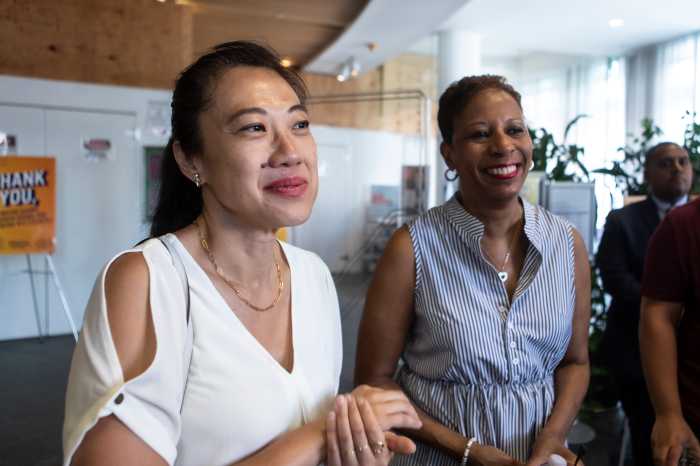Robert Tanner currently serves as the interim executive director of Climate Nexus. In this role, Mr. Tanner fuses strategy and tactical execution, with oversight of all operations including editorial content, digital and social strategy, messaging, partnerships and finances. Prior to joining Climate Nexus, Mr. Tanner served as senior investigator for the U.S. Senate Environment and Public Works Committee during the climate change debates of 2009-2010 and the 2011 Fukushima disaster.
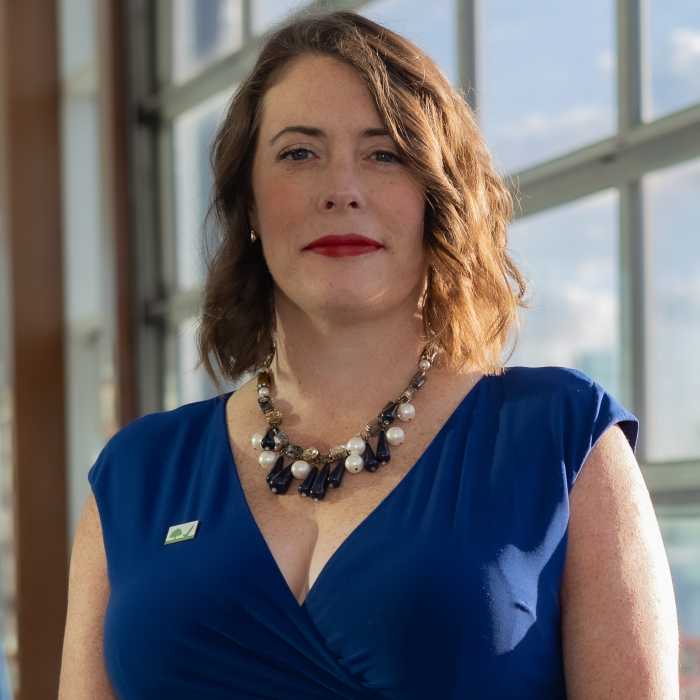
Julie Tighe
President, New York League of Conservation Voters

Julie Tighe is the president of NYLCV and NYLCVEF. In that role, she played a significant role in passing the CLCPA, congestion pricing, and all electric school buses. She also secured increased funding for water infrastructure and parks, a commitment for citywide curbside composting, and was instrumental in the campaign that led to passage of the $4.2B Clean Water, Clean Air, Green Jobs Bond Act. Previously, she served as chief of staff at NYSDEC.
What does sustainability mean to you?
Sustainability is at the heart of everything we do at the League. It means finding practical solutions that support both the environment and economy, while prioritizing environmental justice and workers. A sustainable future is founded on clean energy and a circular economy, slashed air and water pollution, and access for all to parks and nature. We’re committed to championing policies that achieve these goals and create a healthier, more resilient NY for generations to come.
Is there one major climate issue your organization is looking to tackle?
We’re committed to addressing multiple climate issues. However, one of our top priorities is reducing emissions in the transportation sector, which is responsible for approximately 28% of the state’s emissions. We advocate for the adoption of a clean fuel standard as well as policies that promote electric vehicles–including school buses–and policies that encourage less driving, like installing more bike lanes, better pedestrian infrastructure, mass transit funding, and the development of sustainable transportation alternatives like e-scooters.
What is one thing everyone can do to help protect the environment?
We say this often at the League: Our Vote is Our Power. The most important thing you can do to protect the environment is vote. In every election. We can only do so much as individuals. Elected officials are the ones who can deliver systemic policies that will–or won’t–protect our environment and stem the tide of climate change. By voting for candidates who prioritize the environment, we can help ensure a sustainable and just future.
What steps are your organization taking to ensure a sustainable future?
Leagues across the county, including NYLCV, are working to ensure clean energy, clean transportation and democracy for all, and are highly engaged in the political arena to deliver on those goals. We help environmental champions win elections and, once they’re in office, we work hard to educate lawmakers about smart, practical environmental policies and ensure they live up to the green promises they made – and hold them accountable if they don’t.
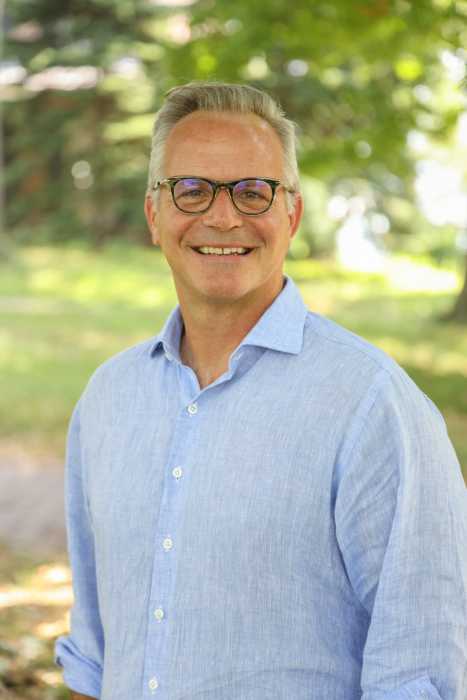
Bill Ulfelder
Executive Director, The Nature Conservancy in New York

With Bill Ulfelder’s leadership, The Nature Conservancy in New York is leading on climate change and conserving lands and waters for all New Yorkers. Bill leads a state-wide team that sees hundreds of thousands of visitors to the Conservancy’s network of over 100 preserves in New York State; promotes policies that conserve nature and seek to strengthen our economy; and the promotion of renewable energy in ways that avoid, minimize and mitigate impacts on people and wildlife. The biggest accomplishment in this past year was the overwhelming support across party lines by voters for the $4.2B Clean Water, Clean Air & Green Jobs Bond Act. The Nature Conservancy helped lead with a diverse coalition of more than 300 partners.
What does sustainability mean to you?
I had the remarkable good fortune to spend time with Oren Lyons, who is an Onondaga Nation elder of the Haudenosaunee Confederacy. Oren explained to me that members of the Confederacy make decisions about what will still serve seven generations from now. Oren explained that he wasn’t talking about the 25 year generations we use, but actual lifetimes. So we’re talking about seven generations that might last more than 500 years. Making good choices about how to live on this earth that will stand the test of 500 years feels like a good measure of sustainability.
Is there one major climate issue your organization is looking to tackle?
Our approach centers nature as fundamental to tackling climate change. Forests, wetlands, healthy agricultural soils, reefs and more have the ability to deliver up to a third of the emission reductions we need globally by 2030. Nature can also play a huge role in adaptation and promoting resilience. In New York City, for example, that means equitably expanding tree canopy and green roofs to mitigate the dangers of extreme heat and intense rainfall. It also means conserving and restoring wetlands, reef habitats, and seagrass meadows along our coasts to help absorb storm surges. Nature is the simplest and most readily available technology we have to tackle climate change.
What is one thing everyone can do to help protect the environment?
Talk about it. We should talk with family, neighbors, friends and acquaintances about climate change and the health of our lands and waters. As the remarkable state-wide support for the Clean Water, Clean Air & Green Jobs bond act demonstrated, New Yorkers of all political stripes want clean water, clean air and a thriving economy. Our appreciation of nature, a healthy environment, a strong economy and the well-being of humanity unite us. We can talk about the ways to sustain what we love.
What steps is your organization taking to ensure a sustainable future?
The Nature Conservancy is working on several fronts, from land conservation and conservation science, to shaping policies at every level across the globe. You can read more about the Nature Conservancy’s 2030 conservation goals at: https://www.nature.org/en-us/what-we-do/our-priorities/
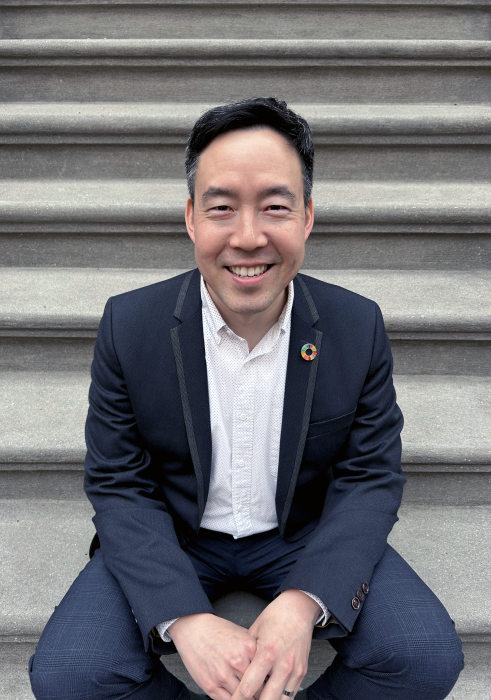
David Wei
Managing Director, BSR

David works with companies to develop and implement credible environmental goals, manage climate and nature risks, integrate justice into environmental action, and incubate collaborations to build a net zero economy. Often this means innovating how companies credibly align with the Paris Agreement, adapt to inbound climate disclosure regulation, and take advantage of growing interest in science-based nature goals. Before joining BSR, David was a climate diplomat for the Marshall Islands in the Paris Agreement negotiations.
What does sustainability mean to you?
My six and two-year-old daughters will likely see warming at the end of the century firsthand. Climate and sustainability are the stories of our generation, as humanity transitions from fossil energy to renewable energy. For businesses, net zero is not merely the endpoint on a curve; it is a transformation that calls well beyond sustainability professionals. Their procurement, finance, research and development and public affairs colleagues, for example, all have a role.
Is there one major climate issue your organization is looking to tackle?
A great success of the climate community since 2015 was to make objective, science-based climate targets a business norm. The nature community aims to replicate this success in the coming years. Science-based targets for climate and nature translate planetary boundaries into company action. In doing so, we will need to adapt business models to reconcile sustainability objectives and growth objectives. This will be a behemoth of a task.
What is one thing everyone can do to help protect the environment?
People have more influence than they think. Many of us are business employees. Every business transformation to net zero is a whole of company transformation. Whatever function you have in a company, you have a role to play. Many of us are voters who can prioritize strong climate and sustainability policy at the national, state and local levels. And we are all children who can influence our parents.
What steps are your organization taking to ensure a sustainable future?
BSR works with our 330 member companies to build a just and sustainable world. We do this in three ways: by providing insight to see a changing world more clearly; advising companies on how to create long-term value for all; and collaboration to take solutions to scale. We design our insights, advisory engagements and collaborations for maximum impact. In this decisive decade for the climate, we must translate business ambition into action to succeed.
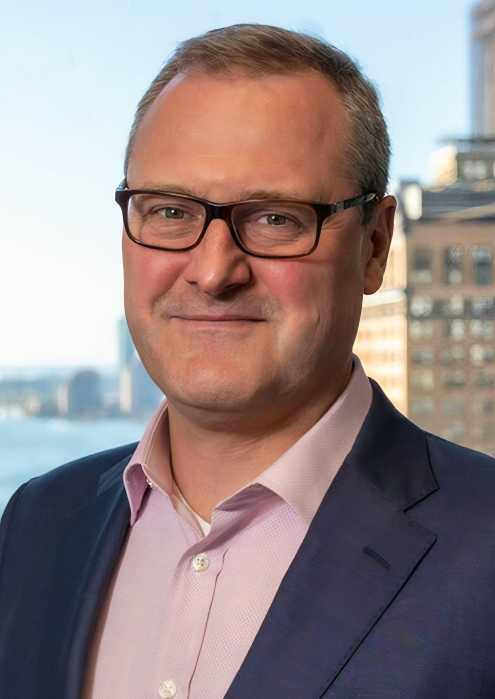
Tom Wright
President and Chief Executive Officer, Regional Plan Association

Tom Wright is president and chief executive officer of Regional Plan Association (RPA), which celebrated its centennial last year as the nation’s oldest independent metropolitan research, planning and advocacy organization. A private, non-profit corporation, RPA improves the prosperity, infrastructure, sustainability, health and quality of life of the New York-New Jersey-Connecticut metropolitan region by researching and preparing long-range plans and advocating for their implementation.
What does sustainability mean to you?
For RPA, sustainability means recognizing that to flourish in the era of climate change, we need to pursue a new relationship with nature that recognizes our built and natural environments are an integrated whole. With historic state and federal funding being made available now, our region must prioritize equitable investments for all of the region’s residents and reduce greenhouse gas emissions and address the impacts of climate change in transformative ways.
Is there one major climate issue your organization is looking to tackle?
We are approaching climate resiliency through the lens of neighborhoods and the most vulnerable communities across the metropolitan region. We have published a number of reports exploring how reimagining infrastructure like streets can promote health equity in communities where climate change is disproportionately impactful. We also continue to examine the critical intersection of the climate and housing crises, recommending policies to prevent future catastrophes like the tragic loss of life in flooded basements during Ida.
What is one thing everyone can do to help protect the environment?
Using public transportation on a regular basis is a simple thing everyone in the tri-state region can do to help curb carbon emissions and protect the environment. Our public transportation systems rely on ridership for a significant portion of their funding, which they in turn invest in improving efficiency and expanding the system. In this way, greater ridership results in a better funded and more functional transit systems and less impact on the environment.
What steps are your organization taking to ensure a sustainable future?
As the impacts of climate change worsen, RPA will continue researching and advocating for empirically-based solutions to our region’s specific needs. We will continue to publish detailed reports on a just energy transition, resilient communities and natural systems, and the multifaceted ways our region’s leaders and citizens alike can work together to tackle these issues. We will continue to partner with communities, businesses, government and civic leaders to advocate for and implement our proposals.
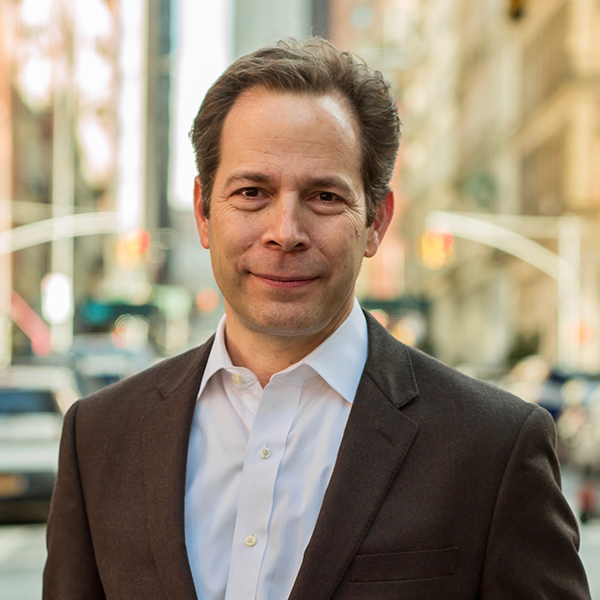
Richard Yancey
Executive Director, Building Energy Exchange

Richard Yancey, FAIA, LEED AP, is the founding executive director of the Building Energy Exchange, a nonprofit accelerating the transition to healthy, comfortable, and energy efficient buildings by serving as a resource and trusted expert to the building industry. Under his leadership, BE-Ex has become a pioneering international centre of excellence dedicated to building decarbonization. Through education, exhibits, and actionable research, BE-Ex plays a central role in the climate action plans of both New York City and State. With over three decades of industry experience, Mr. Yancey has lectured and published widely, and served on numerous expert advisory panels. Mr. Yancey received his Master of Architecture from Harvard University’s Graduate School of Design.
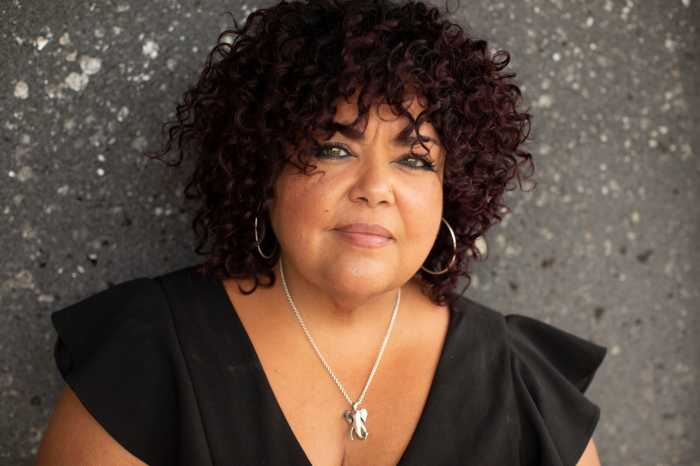
Elizabeth Yeampierre
Executive Director, UPROSE

Ms. Yeampierre is co-chair of the Climate Justice Alliance and executive director of UPROSE, BK’s oldest Latino CBO. She was the first Latina chair of the USEPA NEJAC & opening speaker for the first White House EJ CEQ Forum under Obama. She’s been featured in the NY Times as a visionary paving the path to Climate Justice, Apolitical as Climate 100: The World’s Most Influential People in Climate Policy, Vogue & Oprah’s list of Future Rising
What does sustainability mean to you?
Sustainability means building local alternatives that center traditional ecological and cultural knowledge and create a pathway for a regenerative future.
Is there one major climate issue your organization is looking to tackle?
Locally, UPROSE is looking to decommission peaker plants & decarbonize Sunset Park while also calling for the Green- Re-industrialization of our significant maritime industrial area to serve as the economic engine that builds for climate adaptation, mitigation, renewable energy, food sovereignty and green manufacturing. We believe that a just transition is not just aspirational , but operational.
What is one thing everyone can do to help protect the environment?
Everyone can demand that we move away from the fossil fuel economy and reject extractive false solutions like green hydrogen that turn frontline communities into sacrifice zones.
What steps are your organization taking to ensure a sustainable future?
Nationally, we are fighting the fossil fuel economy & false solutions like green hydrogen.Statewide we are fighting to protect the CLCPA & as leaders within NY Renews organizing around the Climate, Jobs & Justice Package, a legislative roadmap to rapidly decarbonize NY, make our state healthier, more equitable, ensure a just transition for workers & help create an accessible green economy for all. Locally we are working to decarbonize our working class industrial waterfront community.
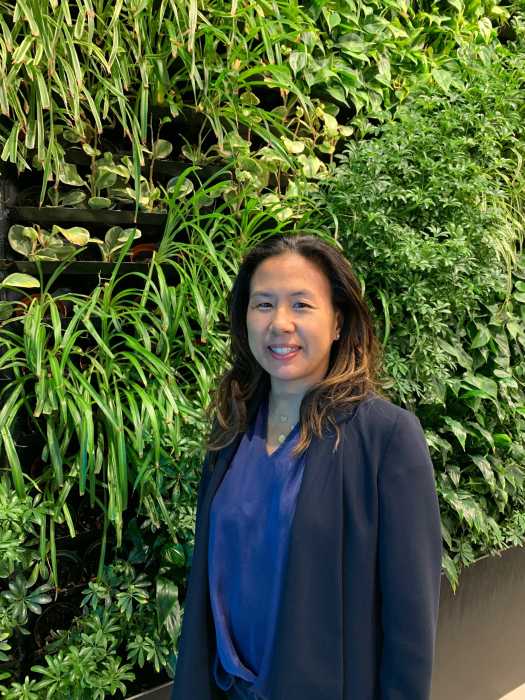
Chun Yee Yip
VP of Social Impact, Lendlease

Chun Yee Yip has two decades of experience advancing environmental and social sustainability solutions in communities. Currently, the VP of social impact at Lendlease, she oversees their Foundation efforts to create social value in the Americas region focusing on workforce development, mental health, climate action, biodiversity, and food security. She received her BA in political science at Barnard College and MIA in international economic policy at The School of International and Public Affairs, Columbia University.
What does sustainability mean to you?
Making a positive impact on our planet and communities by leaving it better than we found it.
Is there one major climate issue your organization is looking to tackle?
Lendlease is a 1.5 degree aligned company and we aim to create $250 million of social value by 2025. We have clear and robust decarbonization plans in place while measuring the positive impact we are making in communities around the world. Our business is focused on meeting these targets through low-carbon development, renewable energy procurement, sourcing sustainable and healthy materials in our supply chain, and creating climate resilient and thriving communities.
What is one thing everyone can do to help protect the environment?
Don’t wait, ACT NOW! Lots of small actions make a big difference.
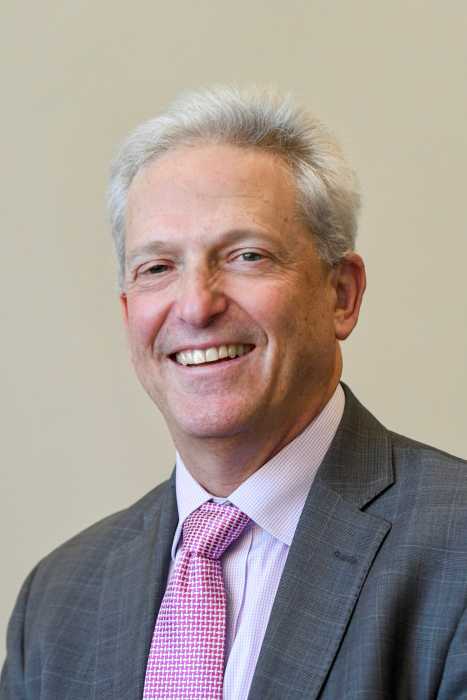
Fred Zalcman
Director, New York Offshore Wind Alliance

Fred Zalcman is the director of the New York Offshore Wind Alliance, a coalition of project developers, environmental NGOs and labor with a shared interest in promoting the responsible development of offshore wind for New York. Zalcman has over 30 years experience in the energy field as an attorney and policy analyst. His career has centered on promoting market structures and regulatory policies that are supportive of energy efficiency, renewable resources and clean distributed generation.
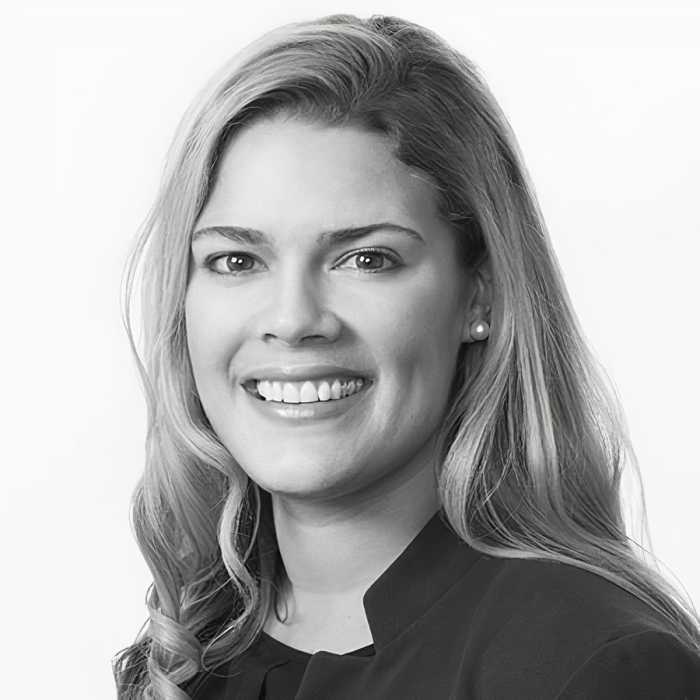
Lauren Zullo
Managing Director of Impact, Jonathan Rose Companies

Lauren Zullo serves as managing director of impact at Jonathan Rose Companies, where she oversees environmental sustainability strategy for the nationwide affordable housing portfolio of existing and ground-up developments and directs the firm’s ESG and impact management. Prior to joining JRCo in 2017, she worked for the Natural Resources Defense Council (NRDC), where she scaled up market-based built environment policies and strategies, and for Greenebaum & Rose Associates. Lauren received her A.B. from Bowdoin College.
What does sustainability mean to you?
Sustainability means meeting our needs of today without compromising the ability to meet the needs of future generations. This of course implies reducing our environmentally damaging activities such as climate-exacerbating emissions, pollution and contamination, and water waste, but also promoting beneficial activities such as equal access to opportunity, protection of biodiversity and nature, and economic stability.
Is there one major climate issue your organization is looking to tackle?
We need to operate buildings without fossil fuels. We’re designing well insulated, energy efficient, all-electric buildings that improve resident health, manage stormwater, and enhance biodiversity. In our existing buildings we’re implementing energy efficiency and electrification to reduce or eliminate reliance on fossil gas, powering them with rooftop solar, and procuring clean electricity.
What is one thing everyone can do to help protect the environment?
Think about the buildings where you live and work and advocate that they improve their operations. In cities, the energy used to heat, cool, and power buildings contribute 50-75% of harmful greenhouse gas emissions but is often overlooked. People are talking about buying electric cars, but have you thought about buying or renting an electric home? There are easy and cost-effective ways to improve buildings, so demand change from your landlord and building owners.
What steps are your organization taking to ensure a sustainable future?
A sustainable future must decarbonize the built environment in an equitable fashion, not just reducing reliance on fossil fuels but doing so in a way that enhances lives and outcomes of the people who live and work in buildings. We approach our real estate investments and developments holistically, aiming to increase affordability, offering resident services that promote opportunity and equity, enhancing living environments to promote human health, preserving biodiversity, and minimizing our resource extraction.





